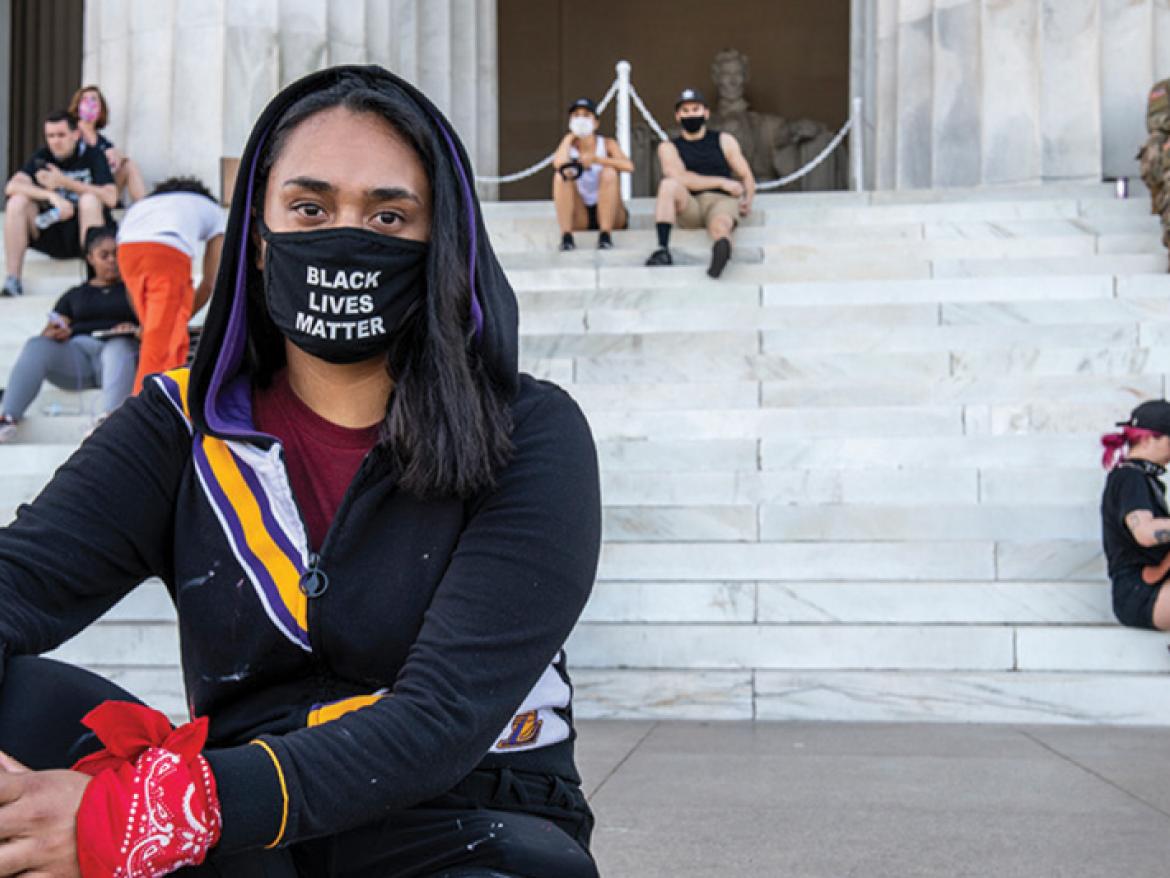We call for a transformation of our current criminal legal system, which today is used principally as an instrument of retribution — a policy contrary to our Quaker beliefs.
We need crime prevention that engages the complex and pervasive causes of crime, which often are rooted in social and economic injustice. We support a system that treats juveniles as children, not as adults, and that is not biased by race, immigration status, or economic class.
Policing
Police are over-utilized in that they are called to respond to homelessness, mental illness, addiction, and more. They are the entry into the criminal legal system for many people of color. Conversations are taking place across the country regarding the broader role of police in communities. At the federal level, Congress is exerting influence through federal funds to reform police behavior in all 18,000 departments nationwide. We are seeing federal police reforms advance that would limit use of force, end religious and racial profiling, and stop the transfer of military equipment to local police departments, among others.
Mass Incarceration
We all lose when we lock people away. Incarceration denies the opportunities for rehabilitation and healing that are necessary for a person to fulfill his or her potential. This is a loss not only to the individual and his or her family, but to society as a whole.
Our communities and families will be strengthened by a system that embraces restorative justice and seeks to return the formerly incarcerated to society with their full rights and obligations. Incarceration of violent and destructive individuals is sometimes necessary for safety, but community-based alternatives to incarceration are often better responses to crime.
Our communities and families will be strengthened by a system that embraces restorative justice
In some public schools, thanks to police presence and “zero tolerance” policies, students who misbehave are funneled directly into the juvenile and criminal legal systems. This school-to-prison pipeline disproportionately affects youth of color, as well as students who are poor or have been abused or neglected. Rather than providing the services that could help these children, schools isolate, punish, and push them out.
Gaps in the U.S. mental health system also drive up the prison population. As George Mason psychology professor June Tangney observes, “We have an enormous number of people who are suffering from very treatable illnesses…who end up getting caught in the criminal justice system as opposed to the mental health system.”
Many crimes are prompted by conditions that can best be addressed outside the criminal legal system. Violent acts that stem from using, selling or transferring drugs or obtaining money to use them should be prosecuted — however, substance abuse itself is fundamentally a health issue requiring prevention, education, treatment, and rehabilitation.
Human Rights and Prisons for Profit
Government must ensure that detention facilities provide humane conditions and basic rights. We stand against the inappropriate use of solitary confinement. Profit-making has no legitimate place in the criminal legal system; we oppose privatized detention facilities.
Death Penalty
There are many reasons to end the use of the death penalty. Executing criminals does not effectively address the roots of violence in our society. It has not been shown to effectively deter the sorts of crimes for which it is applied. It does not restore lives destroyed by acts of violence.
Join our email list!
Stay informed and stay active
